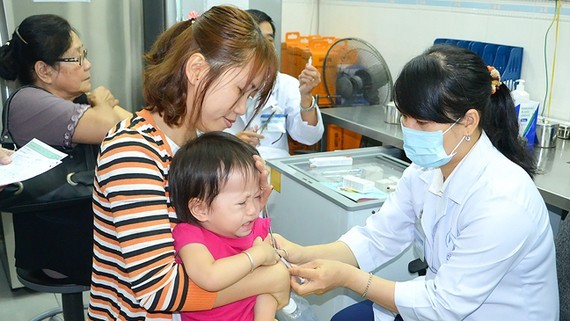
Vaccination against rabies at Pasteur Institute in HCMC (File photo: SGGP)
The Ministry of Health has just sent an official dispatch to people's committees in provinces and cities nationwide to prevent rabies because some provinces such as the Mekong Delta provinces of Ben Tre, Kien Giang, and the Central Highlands province of Gia Lai which are not hotspots for rabies have seen an increase in rabies cases.
Rabies is still a dangerous infectious disease causing epidemics with the highest number of deaths per person in the world as well as in Vietnam. From 2017 to 2021, 76 people succumbed to rabies on average per year.
Rabies is a deadly virus spread to people from the saliva of infected animals. The rabies virus is usually transmitted through a bite. If a person does not receive appropriate medical care after a potential rabies exposure, the virus can cause disease in the brain, ultimately resulting in death. The direct cause of death is that people bitten by suspected rabies animals don’t go to medical facilities to get a vaccine against rabies. The indirect cause is that the rate of vaccination against rabies in dogs and cats is still low and local administrations are lax in managing dogs and cats.
From the beginning of 2022 until now, the rate of vaccination against rabies has only reached about 40 percent of the total number of dogs and cats in the country. To effectively prevent rabies, the rate of animals getting vaccine should be at least 70 percent for two consecutive years.
The Ministry of Health suggested that people's committees in provinces and cities direct the Department of Health to strengthen close monitoring of cases of dogs and cats suspected of rabies. People bitten by animals should be encouraged to go to health facilities for timely examination and vaccination against rabies.
It is suggested that localities should give free of charge or partial support for the cost of post exposure rabies vaccine to the poor, near-poor, and some welfare policy beneficiaries in high-risk areas.
























